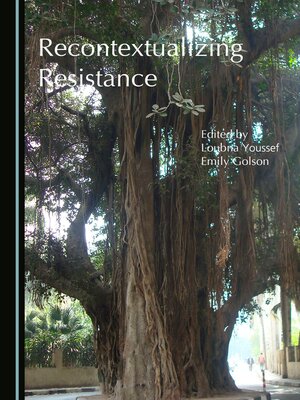
Sign up to save your library
With an OverDrive account, you can save your favorite libraries for at-a-glance information about availability. Find out more about OverDrive accounts.
Find this title in Libby, the library reading app by OverDrive.



Search for a digital library with this title
Title found at these libraries:
| Library Name | Distance |
|---|---|
| Loading... |
Resistance is a concept that rose to the forefront of several areas of study when Max Weber made careful distinctions between authority, force, violence, domination, and legitimation. It gained strong attention when the well-known Palestinian journalist, activist, fiction writer and critic Ghassan Kanafani (1936-1972) published a study titled the Literature of Resistance in Occupied Palestine: 1948-1966, a work that contributed to postcolonial theories of power, race, ethnicity and gender, and second generation theories of orientalism, feminism, and disability. Initially identified by philosophers, historians, and social critics as a focal point for situations in which oppressors brutally destroy the identity or subjectivity of the oppressed, resistance has been transformed by fiction writers, filmmakers, lyricists and speechmakers into a process in which responses and counter-responses to some type of injustice create difficult situations with complicated nuances. These works now form the foundation for what has come to be recognized as "resistance art." This book gathers the insight, knowledge, and wisdom found in different manifestations of this art to further our understanding of the impact of resistance on contemporary life.







